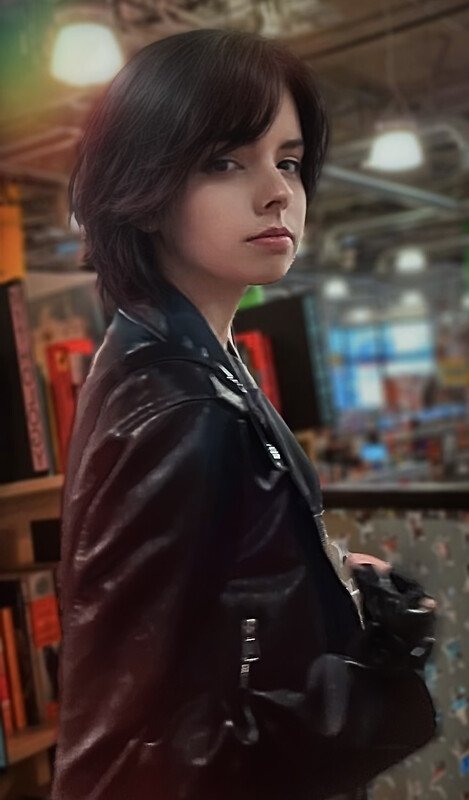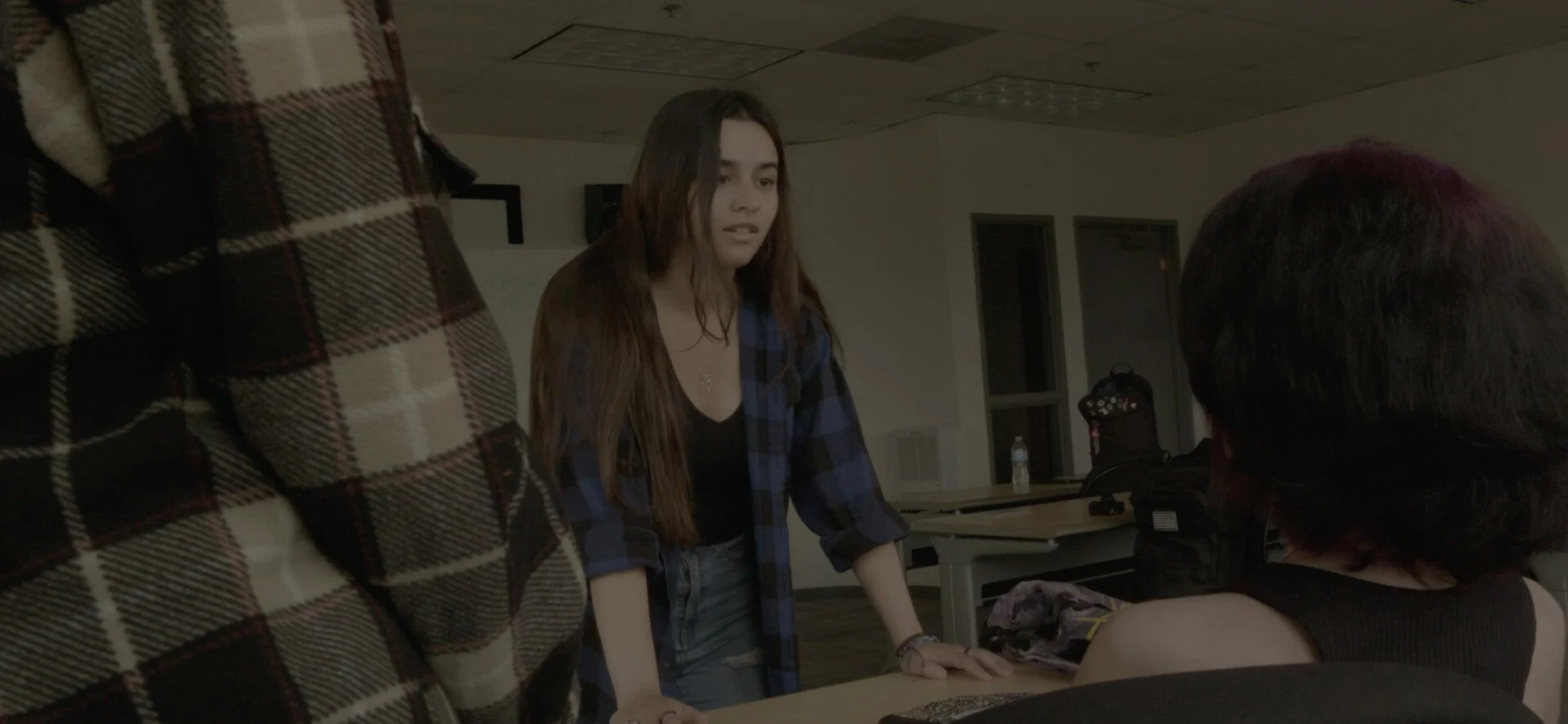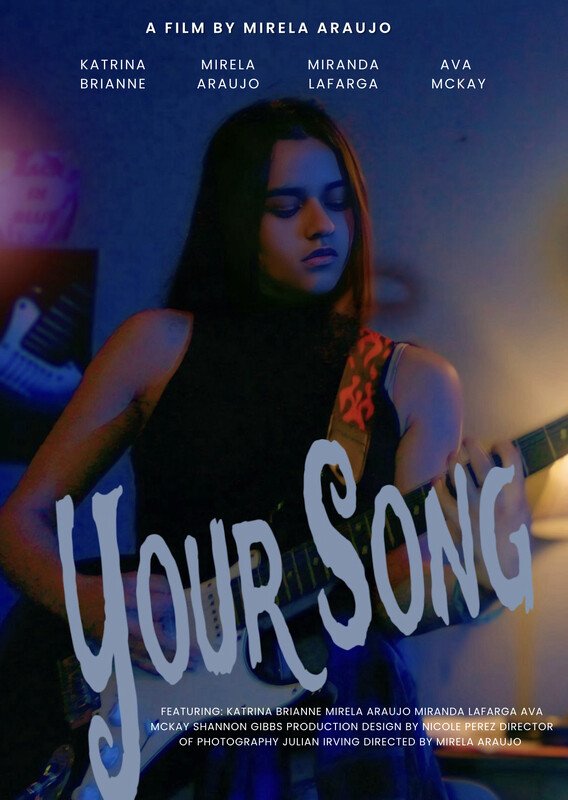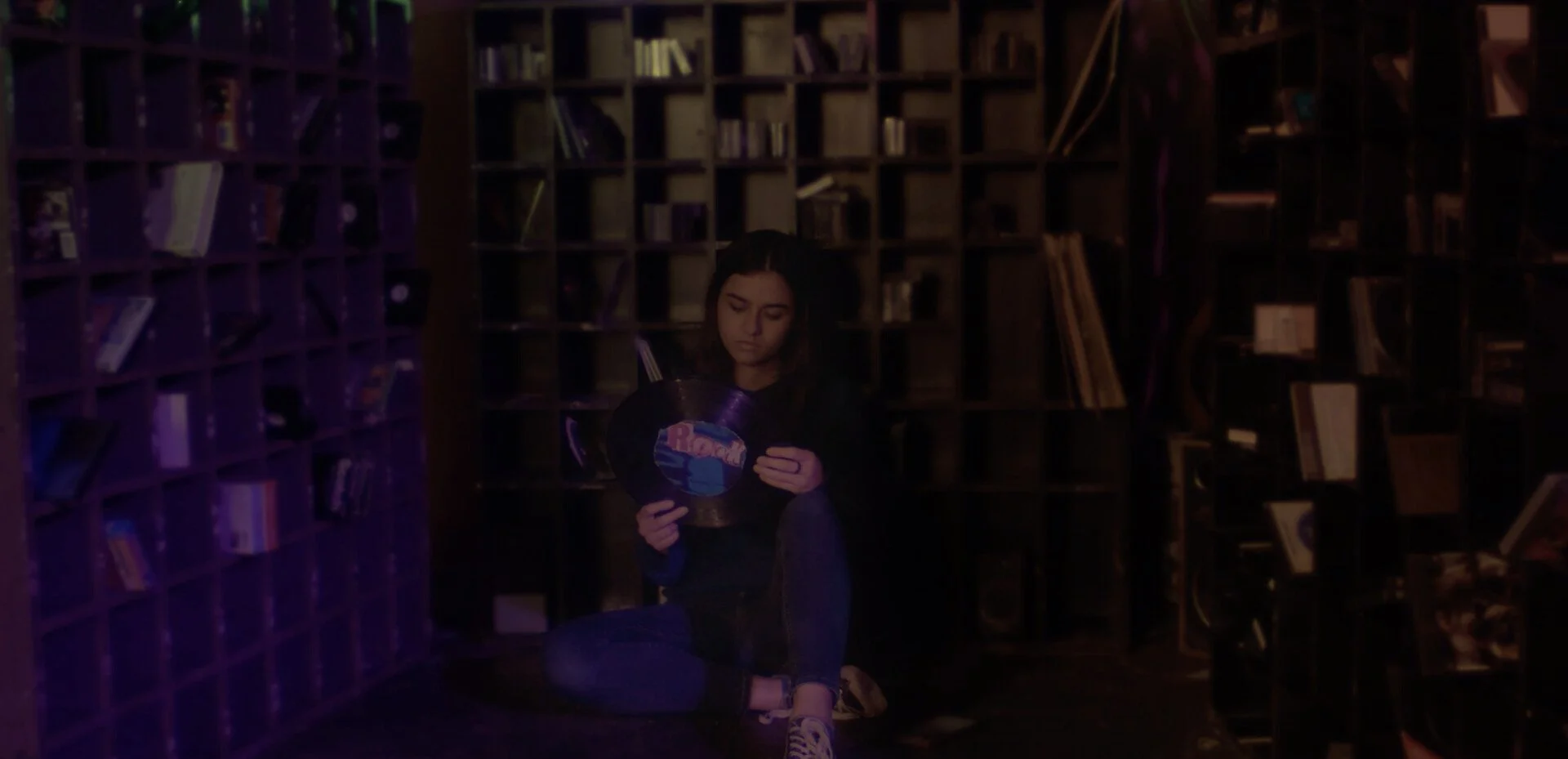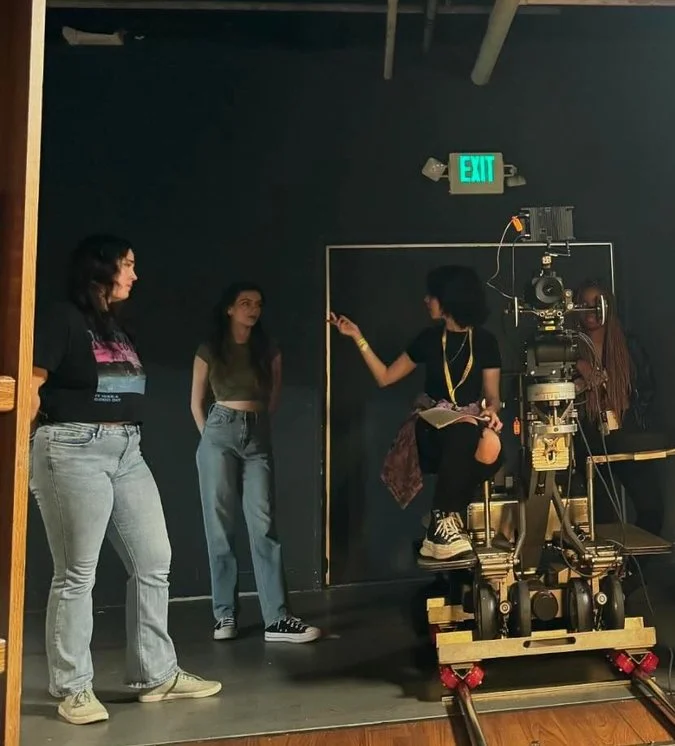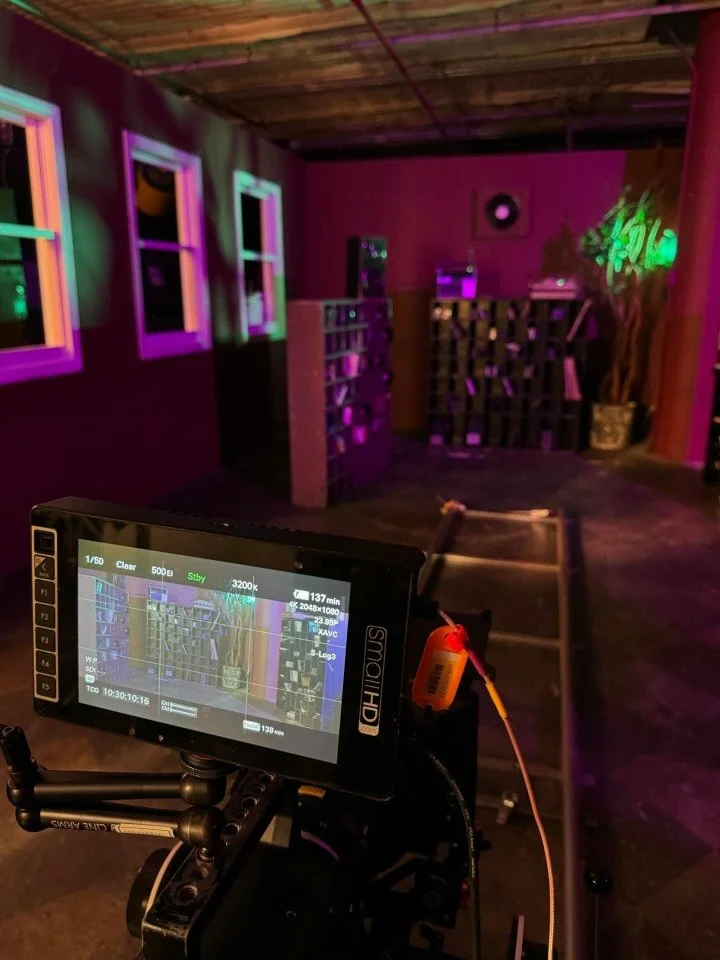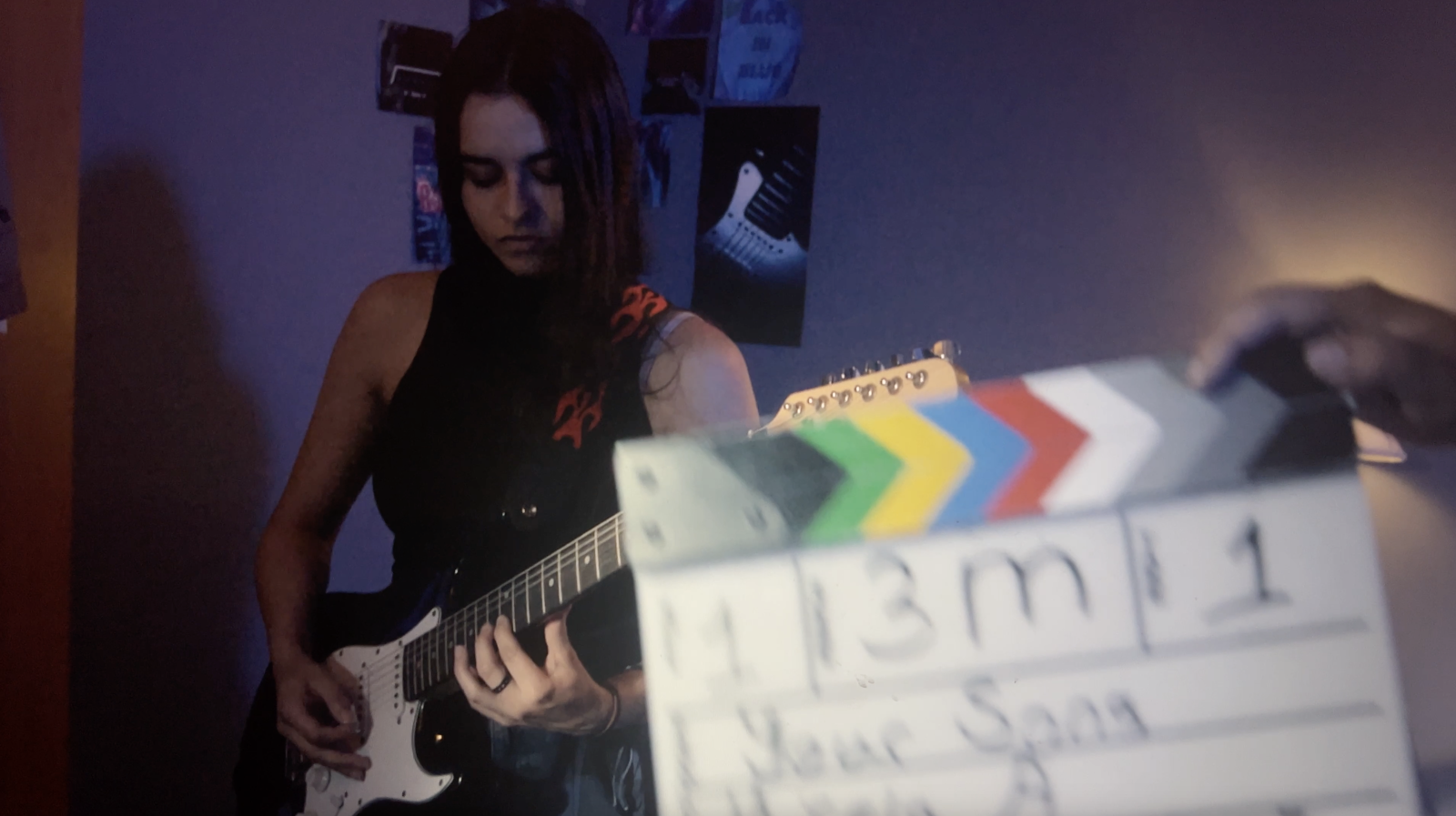How Mirela Araujo Captures Passion and Rebellion on Screen
Welcome Mirela, we are very excited to have you today with us to discuss about your work.
Who is Mirela Araujo and how did the passion for creating begin?
Filmmaking has always been my way of making sense of life. It feels like I’ve viewed the world through a camera lens for as long as I can remember. I started experimenting with storytelling at a young age, filling notebooks with stories and filming whatever caught my attention. One vivid memory is holding my first camera, a small pink one my mom bought to record dance competitions. Once it was in my hands, I never wanted to put it down. I filmed everything: leaves falling from trees, shadows shifting in sunlight, birds flying, and cars passing by.
Eventually, I began bringing the stories from my notebooks to life, running around the house to find different “locations” and stacking books and boxes to position the camera for different angles. I’d even put on costumes and wigs to play the characters, turning my home into a mini film set. These playful beginnings sparked my passion for telling stories that feel both personal and universal.
Can you tell us about your previous work ?
My work spans various genres and forms, including short narrative films, experimental projects, and episodic content. Some of my recent films include Ghost Writer, Connection, Game Over, The Story of the Witch, and Real, where I explore themes like grief, friendship, life choices, and the struggle to stay connected to reality.
Just like when I first started telling stories with my childhood camera, I’m drawn to capturing personal moments with universal meaning. My work often revolves around themes of personal growth, identity, and rebellion. I’m particularly interested in characters navigating complex decisions, much like Skylar in Your Song. Each project is a creative journey, and I love being involved in each part of the process, from writing and directing to editing and sound design.
“Your Song” explores the tension between personal passion and societal expectations. Can you tell us what initially inspired this story and why these themes are so important to you?
The story of Your Song draws from both personal experiences and observations. I’ve seen many people, especially young creatives, struggle to balance their passions with practical expectations, often pressured to pursue “safe” career paths. Skylar’s conflict mirrors this familiar tension: society urges stability, but the heart craves something more. Music became the perfect metaphor for this conflict—personal, free, and unstructured, yet often dismissed as impractical.
Although some think the film reflects my own life, it was inspired by one of my childhood best friends. She had incredible potential and dreamed of achieving something great. But life wasn’t easy for her, and though I understand why she gave up, I still believe she could have reached her dreams.
This film is for her and anyone who feels trapped between their ambitions and dreams and life’s demands. If it inspires even one person to keep going, I’ve done my job. To anyone who needs to hear it: I believe in you. You can do this, follow your dreams and find your song.
CONVERSATION ABOUT: ‘‘Your Song’’
You chose an intimate visual style for Your Song. How did you develop the look and feel of the film to reflect Skylar’s internal struggles?
In Your Song, color reflects the characters’ emotional state and their comfort in the environments they’re in. Skylar is associated with blue and Alex with purple, serving as subtle cues throughout the film. Alex first appears through purple lighting on Skylar’s phone and under purple lighting once again the record store, so when her purple jacket reappears, it signals her return to the audience. Skylar’s room, initially filled with blue tones that symbolize her comfort, shifts to warmer colors after a pivotal conversation, reflecting her growing discomfort as she faces tough decisions. The lighting and composition emphasize her inner conflict, with blue and purple pulling her toward music, while warmer and muted tones highlight the pressure to follow a conventional path.
Camera movement also enhances Skylar’s emotional journey. We use dynamic tracking shots to follow her during moments of action, capturing her restlessness and energy. In contrast, slower, creeping shots emphasize the buildup of tension, especially in the opening scene as her anxiety escalates. These movements visually immerse the audience in Skylar’s inner world, showing the tension between following her passion and meeting the expectations placed on her.
You wore multiple hats in this project—from directing to screenwriting, sound design, and editing. What were some of the challenges and rewards of managing so many aspects of the film?
Balancing so many roles was challenging but deeply rewarding. One of the biggest challenges was managing time and energy, especially during post-production, where editing and sound design required intense focus. However, being involved in every part of the process gave me the creative freedom to ensure the film stayed true to my vision. It also kept me connected to every detail, from shaping the story on the page to enhancing its emotional depth through sound. The most rewarding part was seeing everything come together, with every element reflecting my artistic voice and intentions.
How did you work with the film’s score to highlight pivotal moments in Skylar’s emotional journey?
The score plays a crucial role in Your Song, serving as an extension of Skylar’s emotions. I used music to underscore key moments in her journey. For example, subtle melodies during her moments of reflection and more energetic guitar riffs when she feels drawn toward music. Silence also became a tool, especially in scenes where Skylar struggles with doubt. By removing the music at certain points, we heighten the impact when it returns, allowing the audience to feel her emotional highs and lows more deeply.
What is the central message or feeling you want audiences to walk away with after watching your work ?
I want audiences to leave with a sense of hope and empowerment. Your Song is ultimately about embracing who you are and following your dreams, even when it feels risky. I hope viewers see Skylar’s journey as a reminder that it’s okay to struggle with doubt and uncertainty, and that pursuing what you love is worth it. More than anything, I want them to feel understood and inspired to trust their own voice.
In future projects, do you plan to explore similar genre intersections, or are there other genres you're eager to explore ?
I’m naturally drawn to stories that blend personal growth, identity, and rebellion within character-driven narratives, and I plan to continue exploring these intersections in my future work. Music will remain an essential element in my future films since it provides such a powerful way to express emotions.
My upcoming film, Paint it Red, reflects this ongoing commitment to the use of music in my narratives. Like Your Song, it explores themes of self-discovery, but this time with added layers of mystery and romance. The protagonist struggles to prove herself in the art world while navigating the tension between creative ambition and personal relationships. I’m especially interested in characters at crossroads, struggling with choices and expectations, because these moments of internal conflict offer so much narrative potential.
Paint it Red also explores the complexities of rivalry and romance, where identity and artistic expression drive both the story and the characters forward. Through music, I aim to enhance the emotional depth of these journeys, helping the audience connect more intimately with the characters and their struggles. I’m excited to continue refining my artistic voice and discovering new ways to tell meaningful, resonant stories.
Can you tease any upcoming projects or themes you’re excited to explore in your future works?
Currently, I’m working on Paint it Red, a story that combines romance and mystery with self-discovery. It follows two rivals whose personal journeys intertwine as they uncover truths about each other and themselves. This project gives me the chance to explore deeper themes, such as the tension between self-expression and secrecy.
Additionally, I’m eager to revisit Your Song, which was intended as part of a larger narrative. I’d love to develop it into a feature-length film since there’s so much more to explore with Skylar and her world, including her friendships, fears, and the struggle between who she is and who she’s expected to become. I’m excited about the possibilities ahead and can’t wait to share these stories.
This marks the conclusion of the interview featuring our esteemed artist, Mirela Araujo. Our community is growing steadily, with a continuous influx of skilled filmmakers and screenwriters joining us. Explore our other interviews, and consider scheduling one for yourself to showcase your creative endeavors.

